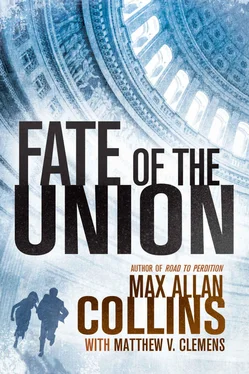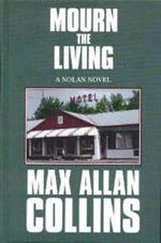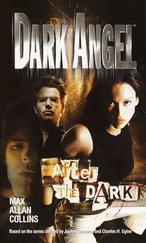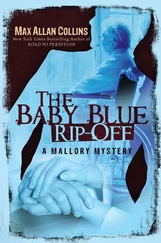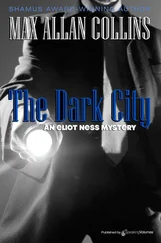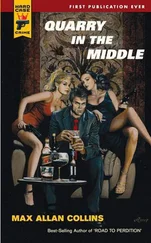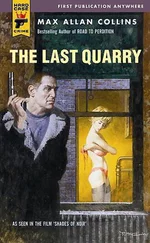“Everyone is entitled to his own opinion, but not his own facts.”
Daniel Patrick Moynihan
Sitting outside Bryson Security in his Prius, heat on and engine running — which defeated the purpose of having a Prius at all — Joe Reeder steamed like a tin lizzie radiator about to blow. He had suffered both injury and insult, the aches of the brawl’s aftermath followed by the affront of bystander status in his own case.
DC homicide detective Pete Woods, who Reeder had called to the scene, was finally buying into the probability of a staged “suicide” for Chris Bryson. That should have been cause for celebration; instead, Reeder boiled and brooded out here while Woods pursued the investigation inside the strip mall office.
Woods seemed even younger than Bishop had promised, somewhere barely north of thirty — short dark hair, steel-framed glasses, unimpressed green eyes, five ten, slender. His ensemble had a collegiate look — gray trench coat, maroon sweater barely showing the pale red-and-blue plaid shirt with navy tie, navy chinos. He struck Reeder as a refugee from a boy band back in daughter Amy’s middle-school days.
“I can’t allow a private citizen into an active crime scene,” Woods had said. “That includes you, Mr. Reeder. Sorry.”
“You’re here because I called you,” Reeder reminded him, with the fake calm he’d long ago learned to affect, “and one of the crimes committed here was an assault upon my person.”
“Changes nothing.”
“Well, something’s changed anyway. Now you don’t think Chris killed himself.”
The boy detective raised a forefinger. “I don’t necessarily think Mr. Bryson took his own life. You can wait outside or in your car. I’ll have someone take your statement in a while.”
Woods disappeared inside, leaving a uniformed officer to guard the door in case Reeder decided to storm the fortress.
That was when he’d phoned Rogers.
When she pulled into the lot, Reeder played traffic cop, directing her to a place several storefronts down from his Prius, away from Bryson Security, where the cop on guard looked on in confusion — his orders had apparently not included stopping Reeder from leaving his car and going over to another.
He got in and slammed the door behind him, saying, “The bastard won’t let me in.”
She was just unbuckling her seat belt. “Which bastard would that be?”
“The Doogie Howser detective.”
“Who?”
Before her time.
He said, “That punk kid from DC Homicide.”
“Take a breath. Take two. Remember who you are — the hard-to-read, unflappable Joe Reeder.”
“Shit,” he said, but he took the breaths.
“Isn’t that better?” she asked. “Now tell me what the hell is going on.”
He filled her in about getting jumped at Chris’s office.
“Shoulda had the guy,” he muttered.
“Shoulda coulda woulda,” she said. “Then, what? You called Woods and he finally buys your theory?”
He grunted a laugh. “That Chris was murdered is a ‘theory’ like climate change or evolution. But yes, he pretty much buys it now.”
“And?”
“And what?”
Patiently, she asked, “What makes him a bastard? Assuming his parents were married.”
Reeder frowned. “He’s a bastard because he won’t let me into that office to, you know, help with the investigation. You know the investigation I mean — the one I started?”
“I do. Must I ask you to take two more deep breaths?”
“No. No, I’m fine. Peachy fuckin’ keen.”
“Is that a real expression?”
“Minus the middle word it is.” He looked right at her. She was cool, calm, and collected — to invoke another old phrase everybody had forgotten but dinosaurs like him and his late friend Chris. He’d like to think part of her poise and self-confidence came from working with him. But he knew she was a natural.
“I need you,” Reeder said, “to pull rank and get me in there, so I can help find whatever my attacker was looking for.”
“Or,” she said, “if Woods finds it first, to make sure he knows what he’s found?”
“Right, only I don’t think that kid could find a bee in a hive.”
She shook her head. “Joe, that’s what’s called a crime scene. And, thanks to you, it’s part of an active homicide investigation.”
“Exactly, which is why I need in.”
“No,” she said.
He knew enough not to try to run roughshod over her. His back, where he slammed into the desk, nagged him. “You wouldn’t have any naproxen, would you?”
She got him a couple from her purse. He took them down without water. He prescribed himself several more deep breaths, unbidden.
Then he said to her, “You’re right.”
“Don’t play me, Joe. I’m one of the few people on this planet who can read you.”
He managed a wry smile. “Guess I’m too good a teacher.”
“If you’re fishing for an apple, forget it. The naproxen is all you get, and that includes sympathy. Now, tell me, in detail, what the hell happened here. Back it up all the way.”
He told her everything — a very brief rundown on the Benjamin meeting, then sending Christopher and Beth Bryson off to parts unknown, his arrival here to see if Chris’s laptop was in his office, the fight in the dark. Even the license number of the Nissan that had apparently been the intruder’s ride.
When he was done, she sat thinking, as expressionless as a bisque baby. Then a touch of Mona Lisa smile came to her lips.
“What?” he asked.
“Strikes me what we need here is a little interdepartmental assistance.”
“That might get you in, but what about me?”
Now Mona Lisa was smirking a little. “You’re a consultant to the Special Situations Task Force, remember? Don’t tell me you forgot to mention that to Detective Woods?”
He grinned at her. “Slipped my elderly mind.”
Getting her cell from a peacoat pocket, she silenced Reeder with a raised forefinger, then punched in a number and waited.
After a moment, she said, “Miggie? I need a couple of things... Yes, you can expect another bag of free-trade Sumatran, you pirate. What I need is the security footage from the Skyway Farer for Tuesday night... Right, that’s the motel where Chris Bryson died.”
She listened for the computer guru’s response, which was brief, then said, “The other thing is more immediate — run a plate for me: Kentucky, 440 RHW... I can wait.” She dropped cell-in-hand to her lap and asked Reeder, “Where’s the box of evidence Mrs. Bryson gave you? And the home computer?”
“All in my trunk.”
She gave him her keys. “Move it all to mine. I’ll take it to the lab.”
“Won’t that piss off your about-to-be-interdepartmental pal, Detective Woods?”
She shrugged. “Valuable life lesson for him — shouldn’t have jumped to a conclusion and jettisoned the evidence.”
Reeder wasn’t even out of the car before she got the return call. But he stayed on task, breath pluming as he went to the Prius and gathered from its trunk the box of bagged clothing and other effects, on top of which he piled the smallish computer tower. Then he lugged the box back to her Ford and put it in her trunk.
Again in the rider’s seat, shut in from the cold, he handed the keys back to Rogers, already off the cell.
“Make me happy,” he said.
“Well, of course retrieving that security footage is going to take some time.”
“Of course. And the Nissan?”
“A rental. Avis. Picked up at their Dulles location. Cash transaction, but Miggie’s got a photo ID and the rental form.”
She showed Reeder the photo on her phone: guy in his thirties, brown-haired, long-nosed, sharp-chinned, somewhat blurry for an official photo. Had the guy moved on purpose a little, in front of the DMV camera?
Читать дальше
